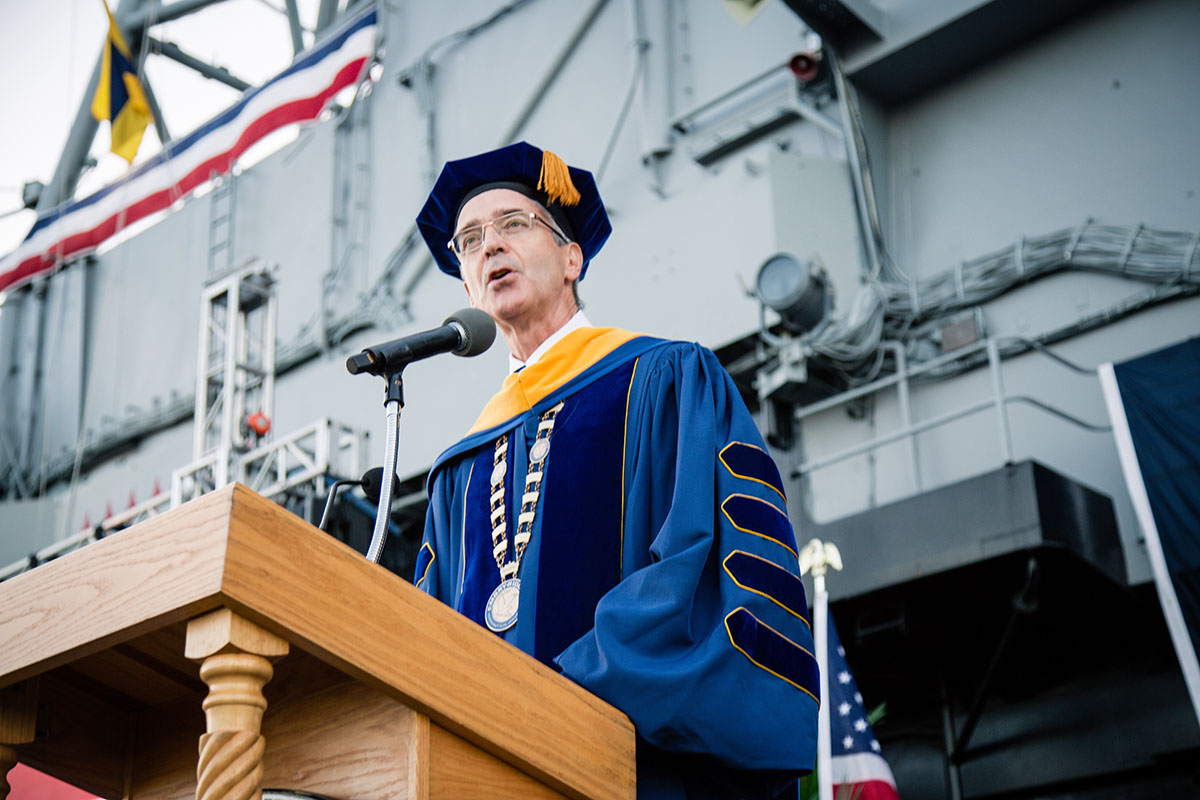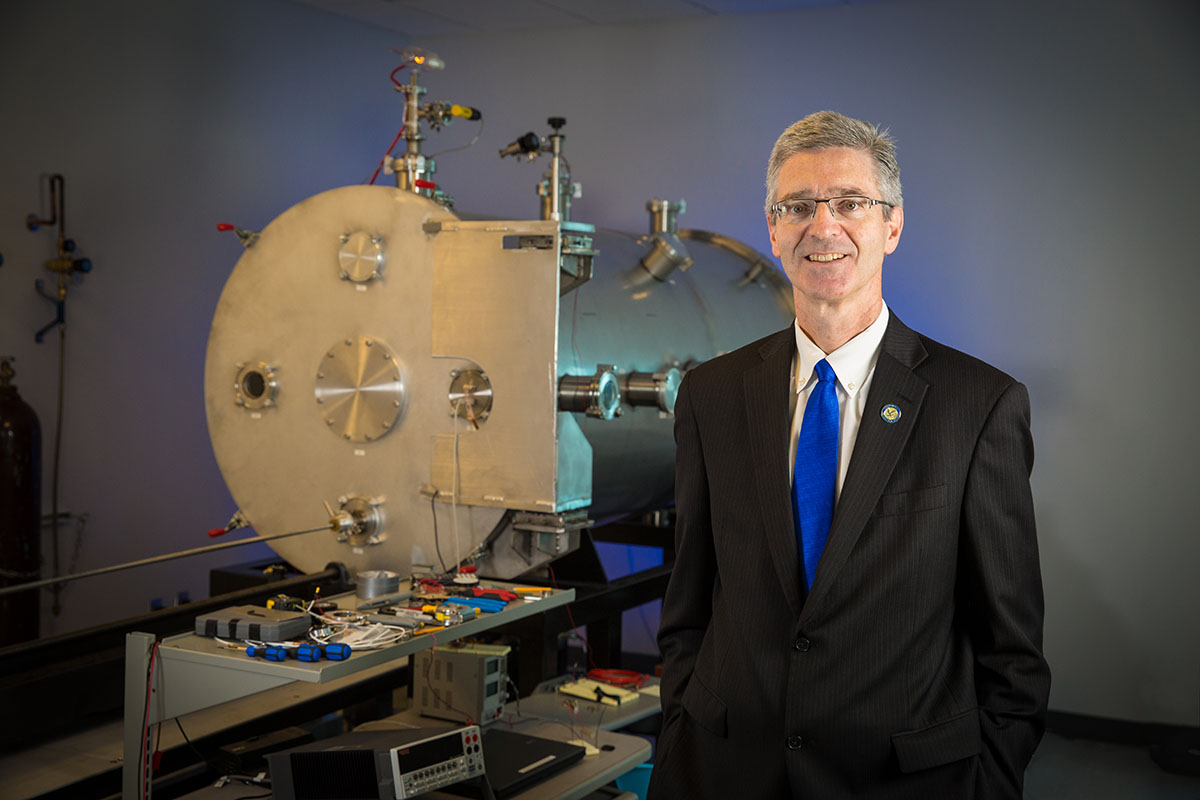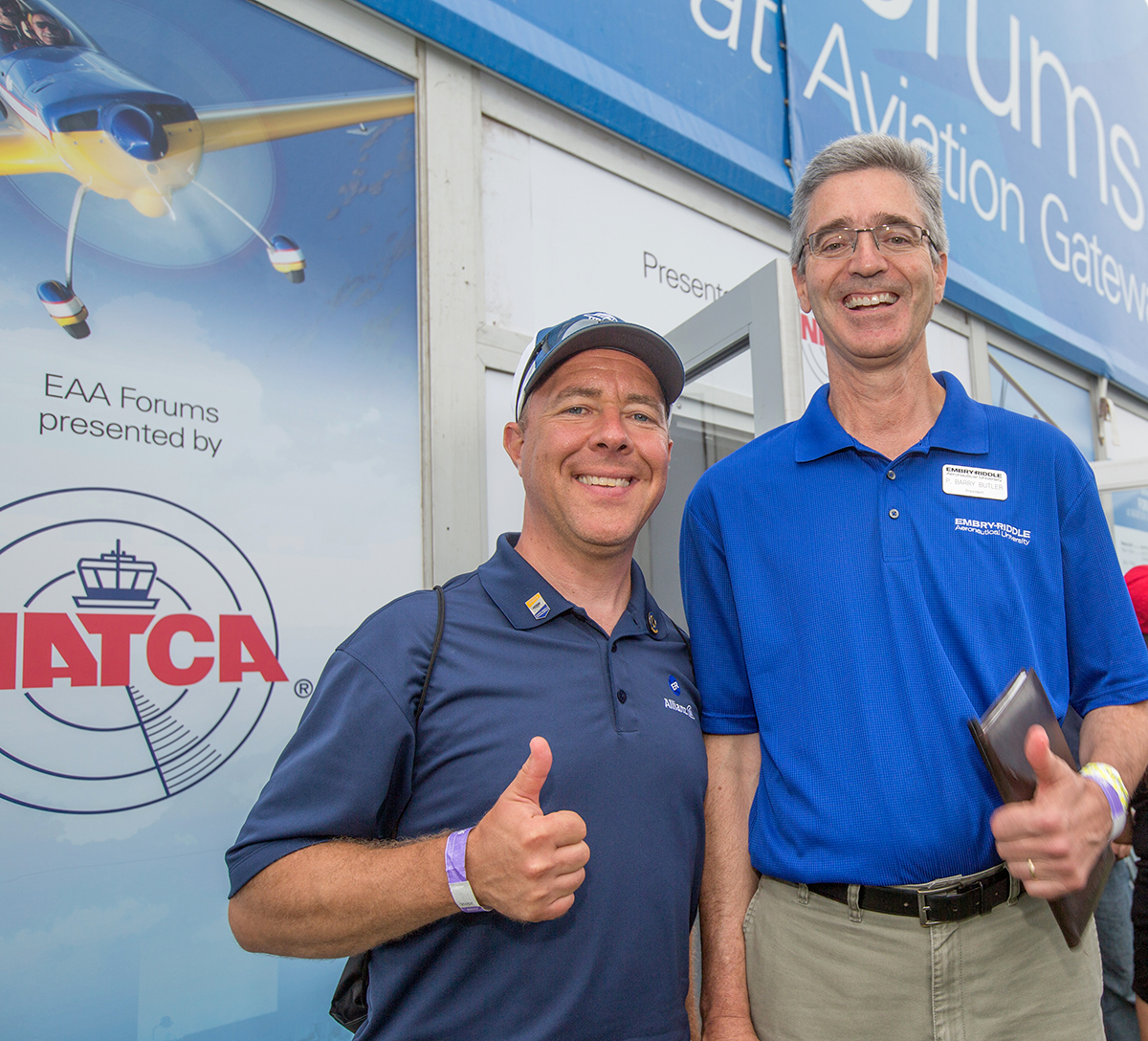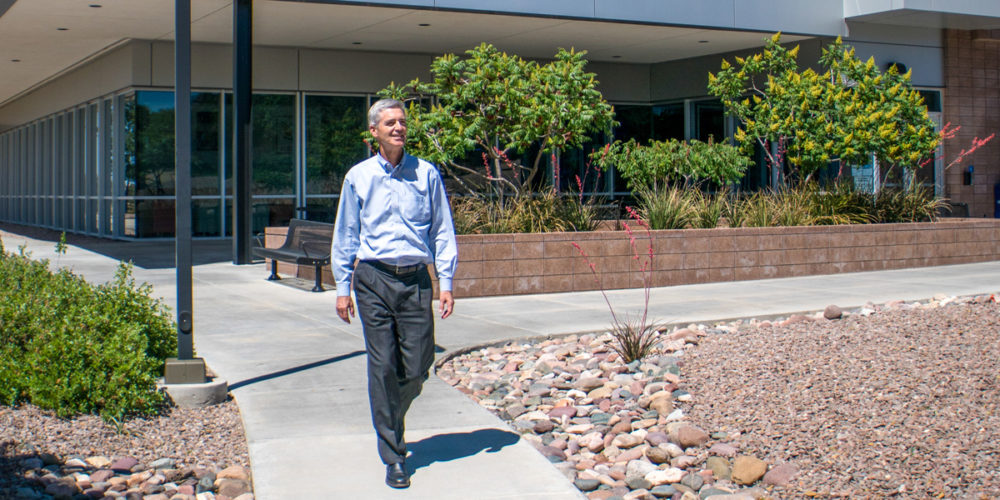In his inaugural address to faculty, staff and students in February, Embry-Riddle’s sixth University President P. Barry Butler, Ph.D., said there were three words that he felt defined our university: passion, pride and expectation. Butler shares all three. He is passionate about aeronautics and all things flight; he is proud of Embry-Riddle and its accomplishments to date — and he’s honored to be leading the world’s largest fully accredited aviation- and aerospace-focused university. And, he has great expectations for Embry-Riddle’s future. In an interview with Sara Withrow, Lift editor, Butler shared the following additional insights.
After 33 years at the University of Iowa… It must have been difficult to leave. How did Embry-Riddle manage to move you away from your Iowa family?
I’ve known about Embry-Riddle for a long time. It is a well-respected and internationally recognized university, especially in the areas of aviation and aerospace. As someone with a strong interest in both higher education and aerospace, the opportunity to lead such a place was compelling. It was an easy decision.
What are your impressions of Embry-Riddle in your first few months as president? What has surprised or inspired you the most?
My first impressions have been nothing but positive. My interactions over the past few months with faculty, staff, alumni and students can be defined in one simple word: passion. It is a passion for who we are and for what we do. There is much to be inspired about when it comes to Embry-Riddle. However, if I have to pick just one area to expand on, it’s our students. Their strong interest in learning more about aviation and aerospace is what I love to see as a professional educator. And it doesn’t end when they walk out of the classroom. I’ve had the opportunity to interact with our students outside of the classroom and their excitement about Embry-Riddle’s mission is infectious.
What is the greatest challenge in higher education today?
Higher education in the United States faces many challenges. One that is at the top of the list of many institutions is the cost to earn a degree. As a university educating the next generation of aviation and aerospace professionals, we have to continuously focus on ways to keep our great programs accessible to all — so that we maintain a pipeline of the best and brightest going into our field. This means being fiscally responsible, working hard to raise scholarship funds, and placing our graduates in high-paying jobs after graduation so they have a high return on their investment. It hurts when you meet talented young people who decide not to pursue their lifelong dreams because the cost is beyond their means.

As a longtime university administrator, what is the most important lesson you’ve learned about leadership?
Teamwork can accomplish much more than individuals acting alone. I’ve had the opportunity to work alongside really outstanding colleagues throughout my career, and the team at Embry-Riddle has the same defining characteristics.
Until now, you’ve continued to teach throughout your time as a university administrator. Why?
Students are the lifeblood of a university. They are the reason why I got into higher education. As an administrator, it is important to know your students. There’s no better way to accomplish this than to teach a class. I enjoy being in the classroom sharing what I know with the students.
What has been your favorite or most notable research project/discovery and why?
Along with a colleague from the University of Illinois, I worked over a period of 10 years to develop a solid propellant combustion analysis program called AIM (Airbag Inflator Model) that was used in the design and optimization of vehicle airbag inflators and related occupant restraint systems. This was in the early years of airbags and their functioning was not robust enough to handle all variations of occupant size, ambient temperature, etc. We were able to assist the automotive industry in the development of what is now a significant factor in improved crash survivability. We later expanded the modeling efforts to include gaseous inflators, which are more common in today’s vehicles.

What about aeronautical/aerospace engineering excites you?
Just about everything. But if I have to pick just one area, it is propulsion. I was hooked as an undergraduate student when I enrolled in my first air-breathing propulsion course. That early interest was further amplified when I took a course in rocket propulsion.
When/how did you first become interested in aviation?
My father was an Air Force pilot. As a kid, I loved going to the airbase with him and attending weekend airshows. I was one of those kids who could identify airplanes by the sound of their engines. That passion for aviation has only grown over the years.
What will you miss most about Iowa?
Driving my snow plow. There’s something strangely therapeutic about clearing snow with a powerful machine. More seriously, I’ll miss the people.
What’s the most important thing you want Embry-Riddle alumni to know about you?
While I’ve been at Embry-Riddle for only a short time, I have developed a passion for the school that quite possibly equals their own. It’s an amazing place, and I feel honored to be a part of its future.
Web Exclusive

Alumni attending the 2017 Experimental Aircraft Association Oshkosh Air Show were asked to share their thoughts about Embry-Riddle and what it means to them with President P. Barry Butler.
Butler Trivia
All-time favorite movie?
Casablanca
What can’t you live without?
Coffee in the morning
What do you enjoy doing for leisure?
Running
Guilty pleasure?
Ice cream and carrot cake
What’s your favorite book/author and why?
The Wright Brothers by David McCullough. It masterfully describes the teamwork, persistence and creativity it took to achieve the first controlled flight. I look at the statue of the Wright Flyer every morning when I arrive at my office in Daytona Beach, and it inspires me to reach for new heights.
If you could have lunch with anyone alive or dead, who would it be and what would you talk about?
President Lincoln. I’d like to discuss his leadership of our country during the Civil War.
